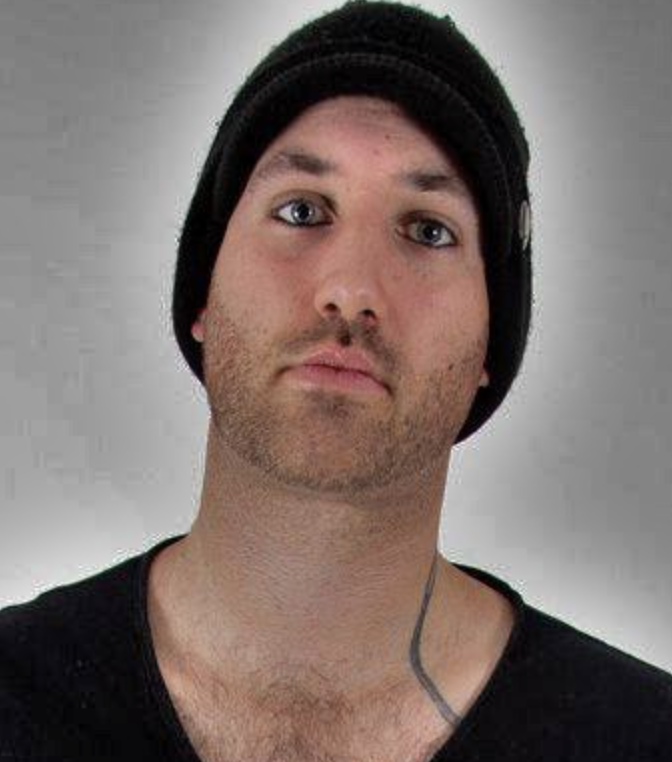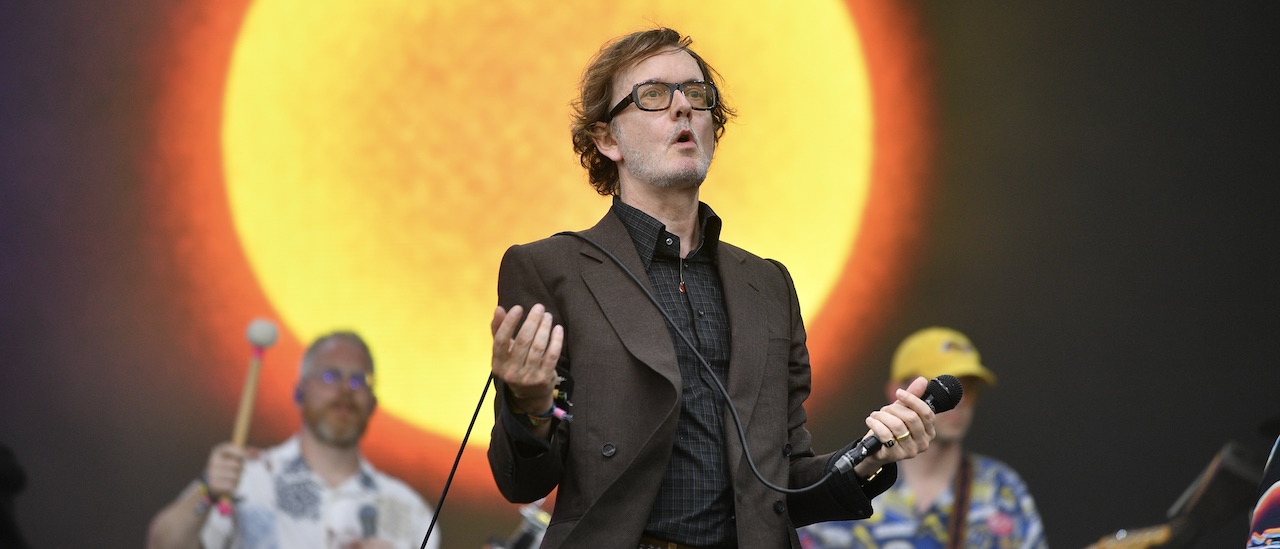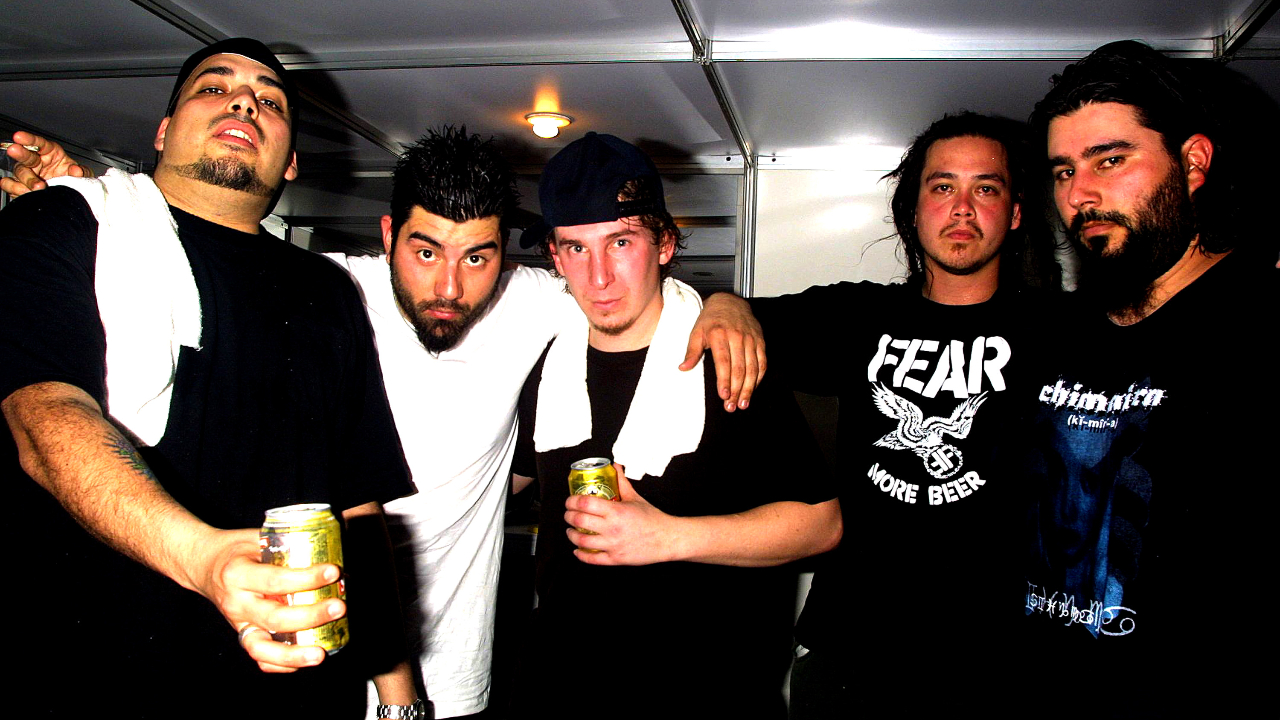You can trust Louder
Headliners: The 1975, Neil Young and Olivia Rodrigo
Festival dates: Wednesday, June 25 - Sunday, June 29
UK coverage - free on BBC iPlayer
Watch iPlayer anywhere: Unblock iPlayer with Nord VPN's 30-day trial + get an Amazon Gift Card.
Nostalgia is one of the modern ages most powerfully emotive tools. Because everything is a throwback, a reboot, a comeback, a return or a celebration of some anniversary or other these days, it’s hard to differentiate what is a cynical massaging of people’s core memories or an event that is genuinely worth eulogising.
It becomes easier to tell when you see it in front of you. Glastonbury’s secret artist, the craftily titled Patchwork, are in fact Pulp. Who return to the scene of, not just their greatest triumph as a band, but one of the single most definitive moments of both this festival and the Brit-pop movement they helped spearhead. It’s been 30 years since they stepped into the shoes of last minute drop outs The Stone Roses to headline the Pyramid Stage, playing some of the songs that became their most iconic, as frontman Jarvis Cocker will tell us, for the very first time in the process.
Audio from their pre-arrival from that day is pumped through the speakers as a group of rain mack sporting extras stand at the lip of the stage to protect Pulp’s identity before the tinkering piano and woozy rhythms of Sorted for E’s and Whizz kick us off.
Those in attendance, obviously tipped off well in advance, lap it up, but it’s nothing compared with the glee that greets that brilliantly choppy guitar riff that opens Disco 2000. It elicits possibly the biggest crowd chorus on the Pyramid thus far this weekend (although, it gets topped, and we’re sure you know by what), with Cocker still throwing those trademark high camp shapes.
Jarvis then gives a speech about the anniversary of the event, and how that 1995 show was the inspiration for one of Pulp’s new songs, the excellent Spike Island. See, it’s not all about nostalgia after all. In fact the new tracks from latest album More sound great, particularly the disco beats and soul influence of Got to Have Love.
But, unsurprisingly it’s the old songs that work the best. A stripped down and acoustic Something Changed is gorgeous kitchen sink drama pop, the raucous, soaring, resplendent pomp of Do You Remember The First Time is one of Pulp’s greatest ever anthems and Babies is a sweet, shy, stirring masterpiece.
By the time we get to the end, Cocker has a piece of paper in his hand with the words he said before closing that iconic show back in 1995. But, instead of reading them out, he chooses to rip them up, telling us that our future is still ahead of us and that this moment, this present, is all that matters. And then it's BritPop’s national anthem, Common People. A song which has aged unfathomably well; laced in humour, packed full of pathos and heart, gloriously defiant, unquestionably anthemic, it’s as perfect a piece of pop you will find anywhere, and, crucially, at any time. The crowd goes ballistic, everywhere you look there is cheering, singing, dancing, hugging, crying . There’s joy unconfined across the field, and it feels like 1995 all over again.
The latest news, features and interviews direct to your inbox, from the global home of alternative music.
Pulp deserves the acclaim and appreciation for their work of 30 years ago, but they’re still here now, and they’re still absolutely sublime.

Stephen joined the Louder team as a co-host of the Metal Hammer Podcast in late 2011, eventually becoming a regular contributor to the magazine. He has since written hundreds of articles for Metal Hammer, Classic Rock and Louder, specialising in punk, hardcore and 90s metal. He also presents the Trve. Cvlt. Pop! podcast with Gaz Jones and makes regular appearances on the Bangers And Most podcast.
You must confirm your public display name before commenting
Please logout and then login again, you will then be prompted to enter your display name.

